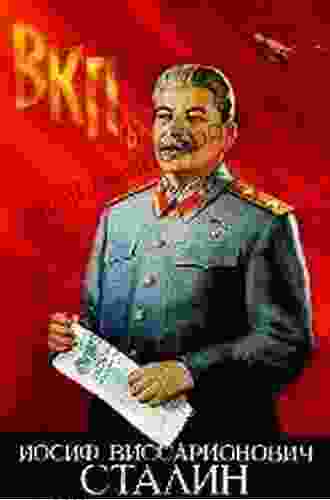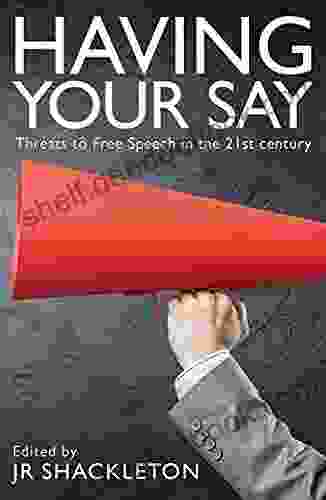Learning In U S And Soviet Foreign Policy

The Soviet Union's foreign policy was a complex and evolving phenomenon, shaped by a variety of factors including ideology, national interests, and the international system. In recent years, scholars have increasingly focused on the role of learning in Soviet foreign policy, arguing that the Soviets were able to adapt and adjust their policies in response to changing circumstances. This article explores the concept of learning in Soviet foreign policy, examining the different ways in which the Soviets learned from their experiences and how this learning shaped their subsequent policy decisions.
Soviet foreign policy was characterized by a high degree of continuity over time. This continuity was due in part to the Soviet Union's ideological commitment to Marxism-Leninism, which provided a clear and consistent framework for understanding the world and guiding Soviet policy. However, the Soviets also demonstrated a remarkable ability to adapt and adjust their foreign policy in response to changing circumstances. This ability to learn from their experiences was a key factor in the Soviet Union's success as a global superpower.
The Soviets learned from both their successes and their failures. For example, the Soviet victory in World War II taught them the importance of military strength and the value of alliances with other countries. The Soviet defeat in the Cold War, on the other hand, taught them the limits of their power and the importance of economic development. The Soviets also learned from the experiences of other countries, both allies and adversaries. For example, they studied the Chinese revolution and the Vietnamese War in order to better understand the dynamics of revolutionary movements.
5 out of 5
| Language | : | English |
| File size | : | 3164 KB |
| Text-to-Speech | : | Enabled |
| Screen Reader | : | Supported |
| Enhanced typesetting | : | Enabled |
| Word Wise | : | Enabled |
| Print length | : | 895 pages |
The Soviets used a variety of methods to learn from their experiences. They conducted extensive research and analysis, both within the Soviet Union and abroad. They also engaged in regular consultations with their allies and partners. The Soviets were also willing to experiment with new policies and approaches. For example, they launched the Sputnik satellite in 1957 as a way to demonstrate their technological prowess and to challenge the United States.
The Soviet Union's ability to learn from its experiences was a key factor in its success as a global superpower. The Soviets were able to adapt and adjust their foreign policy in response to changing circumstances, and this enabled them to maintain their position as a major player in the international system for over seven decades.
Specific Examples of Learning in Soviet Foreign Policy
There are many specific examples of how the Soviets learned from their experiences and how this learning shaped their subsequent policy decisions.
The Soviet victory in World War II taught them the importance of military strength and the value of alliances with other countries. This lesson was reinforced by the Cold War, which saw the Soviet Union and the United States engage in a prolonged arms race and compete for influence around the world. The Soviets also learned the importance of maintaining a strong military in order to deter potential adversaries and to protect their own interests.
The Soviet defeat in the Cold War taught them the limits of their power and the importance of economic development. The Cold War placed a heavy burden on the Soviet economy, and the Soviets eventually found themselves unable to keep up with the United States in terms of military spending and technological innovation. This lesson taught the Soviets the importance of focusing on economic development in order to build a more sustainable and prosperous society.
The Soviets also learned from the experiences of other countries, both allies and adversaries. For example, they studied the Chinese revolution and the Vietnamese War in order to better understand the dynamics of revolutionary movements. They also learned from the success of the United States in developing its economy and its military.
The Soviets used a variety of methods to learn from their experiences. They conducted extensive research and analysis, both within the Soviet Union and abroad. They also engaged in regular consultations with their allies and partners. The Soviets were also willing to experiment with new policies and approaches.
The Legacy of Soviet Foreign Policy Learning
The Soviet Union's ability to learn from its experiences is a valuable lesson for contemporary policymakers. In a world that is constantly changing, it is more important than ever to be able to adapt and adjust policies in response to new challenges and opportunities. The Soviet Union's experience shows that learning is a key factor in successful foreign policy.
The legacy of Soviet foreign policy learning is still felt today. The Soviet Union's successor state, Russia, continues to learn from its own experiences and from the experiences of other countries. Russia has adopted a more pragmatic and less ideological approach to foreign policy, and it has been willing to cooperate with other countries in order to achieve its goals. This learning has helped Russia to become a more influential player in the international system.
****
Learning is a key factor in successful foreign policy. The Soviet Union was able to adapt and adjust its policies in response to changing circumstances, and this enabled it to maintain its position as a major player in the international system for over seven decades. The legacy of Soviet foreign policy learning is still felt today, and it continues to inform the foreign policies of Russia and other countries around the world.
5 out of 5
| Language | : | English |
| File size | : | 3164 KB |
| Text-to-Speech | : | Enabled |
| Screen Reader | : | Supported |
| Enhanced typesetting | : | Enabled |
| Word Wise | : | Enabled |
| Print length | : | 895 pages |
Do you want to contribute by writing guest posts on this blog?
Please contact us and send us a resume of previous articles that you have written.
 Book
Book Page
Page Chapter
Chapter Text
Text Story
Story Genre
Genre Reader
Reader Library
Library Paperback
Paperback E-book
E-book Magazine
Magazine Paragraph
Paragraph Sentence
Sentence Shelf
Shelf Glossary
Glossary Bibliography
Bibliography Foreword
Foreword Preface
Preface Synopsis
Synopsis Codex
Codex Tome
Tome Bestseller
Bestseller Classics
Classics Narrative
Narrative Biography
Biography Autobiography
Autobiography Memoir
Memoir Reference
Reference Librarian
Librarian Card Catalog
Card Catalog Study
Study Lending
Lending Academic
Academic Reading Room
Reading Room Interlibrary
Interlibrary Storytelling
Storytelling Awards
Awards Book Club
Book Club Theory
Theory Textbooks
Textbooks Friedrich Nietzsche
Friedrich Nietzsche Isabella Emma
Isabella Emma Michael Moshiri
Michael Moshiri Ken Smith
Ken Smith John Seddon
John Seddon Connell Barrett
Connell Barrett John Henny
John Henny Mark Vail
Mark Vail Truth Smilez
Truth Smilez Dave Chase
Dave Chase Julia Donaldson
Julia Donaldson Mike Mcintire
Mike Mcintire Beverly Crider
Beverly Crider Anne Berest
Anne Berest Craig Barton
Craig Barton Austin Jersild
Austin Jersild Anne H Chasser
Anne H Chasser Erica Marat
Erica Marat Victor Bockris
Victor Bockris Poly Bernatene
Poly Bernatene
Light bulbAdvertise smarter! Our strategic ad space ensures maximum exposure. Reserve your spot today!

 Yasushi InoueMeet the Tough New Heroine for the Extinction Rebellion Generation: Can Band...
Yasushi InoueMeet the Tough New Heroine for the Extinction Rebellion Generation: Can Band...
 Dean ButlerThe Rage of Plum Blossoms: A Captivating Tale of Love, Honor, and the Beauty...
Dean ButlerThe Rage of Plum Blossoms: A Captivating Tale of Love, Honor, and the Beauty... Jarrett BlairFollow ·18.6k
Jarrett BlairFollow ·18.6k Joseph HellerFollow ·9.3k
Joseph HellerFollow ·9.3k Sam CarterFollow ·2k
Sam CarterFollow ·2k Theodore MitchellFollow ·4.4k
Theodore MitchellFollow ·4.4k David MitchellFollow ·9.1k
David MitchellFollow ·9.1k Gustavo CoxFollow ·10.1k
Gustavo CoxFollow ·10.1k Aleksandr PushkinFollow ·4.8k
Aleksandr PushkinFollow ·4.8k Hugh ReedFollow ·8.5k
Hugh ReedFollow ·8.5k

 Beau Carter
Beau CarterLater Political Writings: A Window into the Evolution of...
Political thought, like...

 Tyrone Powell
Tyrone PowellThe Essential Guide to Family School Partnerships:...
: The Importance of...

 Christian Barnes
Christian BarnesAdvancing Folkloristics: Conversations with Jesse...
Dr. Jesse Fivecoate is an...

 Jake Carter
Jake CarterHal Leonard DJ Method Connell Barrett: A Comprehensive...
Are you ready...

 John Updike
John UpdikeCondensed Review of Pediatric Anesthesiology Second...
Condensed Review of...

 Guillermo Blair
Guillermo BlairExploring the Complexities of Motherhood and Identity: A...
Elena Ferrante's "The Lost...
5 out of 5
| Language | : | English |
| File size | : | 3164 KB |
| Text-to-Speech | : | Enabled |
| Screen Reader | : | Supported |
| Enhanced typesetting | : | Enabled |
| Word Wise | : | Enabled |
| Print length | : | 895 pages |







